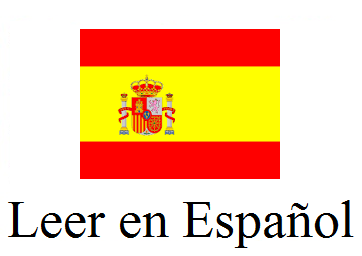Blog News
More Education => Less Vulnerability
Posted On : Jun 03, 2018

More Education → Less Vulnerability
There is a connection between education and vulnerability. The more educated you become, the less vulnerable you are. That is, the more capable of protecting yourself, your family, your assets, and everything “yours” from threats! In doing so, you become better suitable to contribute to the collective wellbeing. This happens when you become a capable solver of difficult problems and/or an inventor of ideas and tools, even if such tools have uses not yet obvious.
Synergy = Economic Prosperity
Ricardo Hausman is an economist of Harvard University. His research has revealed some important tenets to economic prosperity. In plain words he states that economic growth is catalyzed by the collective ability to make complicated things, like cars, rockets, pharmaceuticals and computers. Less advanced societies can only make simple things while advanced societies can make more complicated things, which in turn worth more. Dr. Hausmman found a version of the answer to Yali’s question. A word that captures the full meaning of Dr. Hausmann’s discovery is “synergism”, that is, the type of cooperation that results in an effect larger than the addition of the individual contributions. Advanced societies enable synergism. According to Wikipedia the Space shuttle has 2.1 million parts. The iPhone has much less parts; but it is very interesting that its parts are manufactured and assemble in many parts of the world. The manufacturing of the Space Shuttle is an example of local synergism. The manufacturing of the iPhone is an example of global synergism; but, the participants are just a handful of the most advanced nations, including Japan, South Korea, Taiwan, China, Germany, India, the UK, France and the United States. This is nevertheless encouraging, but how can the less advanced nations of today prepare to participate in future global business deals like the manufacturing of the iPhone?
Don’t Be Easy Prey
Individuals and societies lacking sophistication are easy prey for better equipped individuals and organizations (e.g. nations and corporations). This is the main theme we have seen over and over again with slavery, colonization, and the “ruling over“ of the less technologically advanced by the more technologically advanced. Likewise, some large corporations have been able to abuse entire nations for their own gain. Jarred Diamond’s book Guns Germs and Steel contains a transcript of the accounts by the Spaniards that clashed with the Incas—in what today is Peru—more than five centuries ago. Accordingly, about 7000 “Indians” were slaughtered in less than a day by a few hundred Spaniards. The key to the overwhelming capacity of the Spaniards was their superior weaponry (i.e. guns) and their malice or knowledge of the human inclinations. Fearing the “Indians”, the Spaniards killed as many as possible and paralyzed them with fear. How can a society prevent a similar fate as that of the Incas? How a society can be prepared to deal with sophisticated investors and the CEOs of major global corporations? But more importantly, how can a society construct the framework that will allow its people to synergize and prosper?
More Education Better Malice
Education seems to be a key element to answer the previous questions. Nicaragua is one of the bottom 50 economies in the world. Nicaragua has been intervened upon and occupied by the United States numerous times. Considering that it was ruled by Spain for over four hundred years, it is very likely that the continuous disruption of this nation by foreign invaders is the cause of their economic hardships of today. The Nicaraguans are no less capable than any other nation on earth—they simply ran out of luck in 1492, when Christopher Columbus stepped in America. A dictatorship that spanned three generations of the same family ruled Nicaragua from 1936 until 1979. Naturally, the insurgency during this time period aligned itself with the enemy of the United States—the Soviet Union. After 1979, the United States supported a counter-insurgency that extended the civil war by effectively initiating a proxy war involving the Nicaraguan neighbors. Costa Rica is Nicaragua’s neighbor to the South; but in 1949 had abolished the army and built a culture against war. More importantly, Costa Rica devoted more funds to educating its people than all its neighbors combine. In response to the increasing pressure from the U.S., in 1983 the Costa Rican government declared a state of “perpetual, active and unarmed neutrality”. This political maneuver worked and saved the Costa Rican people from direct involvement in the Nicaraguan conflict. The same malice that propelled the Spaniards to murder so many Incas in 1532, helped the Costa Ricans to foresee the consequences of a direct involvement in the Nicaraguan conflict in 1983—and, more importantly, to circumvent the intentions of a super power. It is a long shot to say that this outcome resulted because Costa Rica had socio-economic indicators similar to those of developed nations, including a very high literacy rate; but it may well be so.
We all have the tendency of “understanding” processes—including socio-economic processes—from a moral standpoint. We “frame” these things in terms of fairness, justice, good and bad. The oppressed sees injustice and the oppressor sees righteousness. Because the oppressor has technological advantage, the only way for the oppressed to avoid harm is to become more sophisticated—especially in the art of diplomacy. This is why building an “army” of people with advanced degrees, especially advanced degrees obtained abroad, is so important for developing countries. More importantly, those advanced degree holders need experience working abroad and dealing with the most sophisticated people. This is why, after graduation, new masters and PhD recipients need to stay abroad, working and taking responsibilities as “big league players”. And then, after learning how the system works, they can return home – if they so wish- to become “game changers”. Of course, an easier and faster way to fill a nation with highly educated people is attracting them, regardless of where they come from, how they look or what language they speak. Easier said than done, especially because this alternative may be perceived as a threat by segments of the ruling elite that uses protectionism to hold on to privileges. Such ruling elite includes the professors of the local universities, the organized professionals and unions. That is, people of all socio-economic levels. And, perhaps because of this, all groups push to maintain the status quo, even if it is poverty for the majority.
More education not only helps to foresee danger and circumvent it, it also increases personal and societal value. Both make the individual and the society less vulnerable.
Every society needs world class workers in their companies, schools and governments. For so long the formation of advanced degree holders has been underestimated. It is time to “wake up”.
One thought on “More Education => Less Vulnerability”
Leave a Reply
You must be logged in to post a comment.



Thanks